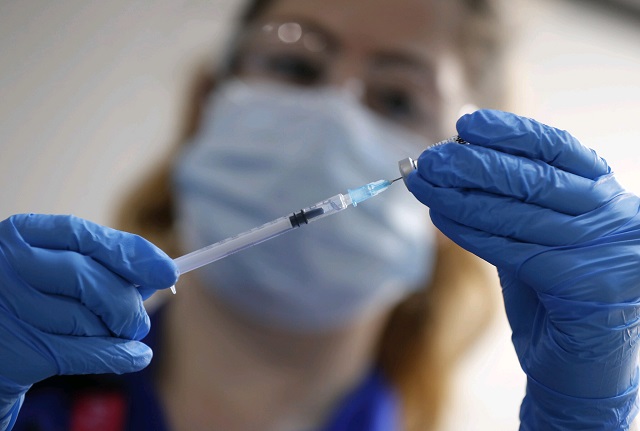
Stockholm, Sweden | Xinhua | The Delta COVID-19 variant could cause nearly all new COVID-19 infections in Europe within weeks, the European Centre for Disease Prevention and Control (ECDC) cautioned on Wednesday.
The Stockholm-based agency under the European Union (EU) also warned that the number of daily cases, as well as hospitalizations and deaths, could increase to the same levels as in autumn 2020 should measures such as social distancing, the use of face masks, and travel restrictions — which the ECDC calls “non-pharmaceutical measures” — be less strictly adhered to.
The ECDC also urged the rollout of mass vaccination be accelerated, and that the second dose be administered as early as possible to minimize the impact of the Delta variant.
FASTER TRANSMISSION
The Delta variant, first identified in India, is 40-60 percent more transmissible than the Alpha, first detected in Britain.
Labelled a “variant of concern” by the World Health Organization on May 11, Delta is projected to become the most prevalent strain in Europe within weeks.
After being reported in Britain in mid-March, the Delta variant became the predominant variant by mid-April, and as of June 14, accounted for 91 percent of sequenced cases, the ECDC said in a Threat Assessment Brief on Wednesday.
Now, it is only a matter of weeks before Delta becomes the dominating strain all over Europe.
“Based on available scientific evidence, the Delta variant is more transmissible than other circulating variants and we estimate that by the end of August it will represent 90 percent of all SARS-CoV-2 viruses circulating in the European Union,” ECDC Director Andrea Ammon said.
What is also worrying, the ECDC said Wednesday, is that the Delta variant may be associated with a higher risk of hospitalization.
There is also evidence that those who have only received the first dose of a two-dose vaccination course are less protected against Delta than other variants regardless of the vaccine type.
RELAXING RESTRICTIONS
With all factors included, the ECDC is concerned that the Delta variant could soon worsen the pandemic in European countries.
“Modelling scenarios indicate that any relaxation over the summer months of the stringency of non-pharmaceutical measures that were in place in the EU/EEA (EU/European Economic Area) in early June could lead to a fast and significant increase in daily cases in all age groups, with an associated increase in hospitalizations, and deaths, potentially reaching the same levels of the autumn of 2020 if no additional measure is taken,” the ECDC said in the assessment report.
Ammon, therefore, called for continued vigilance, saying: “Until most of the vulnerable individuals are protected, we need to keep the circulation of the Delta virus low by strictly adhering to public health measures, which worked for controlling the impact of other variants.”
The warning came when many European countries were reopening their borders for foreign tourists with the EU Digital COVID Certificate, which will function from July 1 in the bloc, the EU said on its website.
“It is very likely that the Delta variant will circulate extensively during the summer, particularly among younger individuals that are not targeted for vaccination. This could cause a risk for the more vulnerable individuals to be infected and experience severe illness and death if they are not fully vaccinated,” Ammon said.
VACCINES WORK
“The good news is that having received two doses of any of the currently available vaccines provides high protection against this variant and its consequences,” Ammon said, urging member states to accelerate the rollout of vaccination.
“However, about 30 percent of individuals older than 80 years and about 40 percent of individuals older than 60 years have not yet received a full vaccination course in the European Union,” she said.
“It is very important to progress with the vaccine rollout at a very high pace. At this stage, it becomes crucial that the second vaccination dose is administered within the minimum authorized interval from the first dose, to speed up the rate at which vulnerable individuals become protected,” Ammon said.
The European Medicines Agency (EMA) lists four vaccines as authorized for use in the European Union, namely the vaccines made by Pfizer, Moderna, AstraZeneca and Johnson & Johnson.
Another four vaccines — including one manufactured by China’s Sinovac — are under rolling review by the EMA.
*****
Xinhua
 The Independent Uganda: You get the Truth we Pay the Price
The Independent Uganda: You get the Truth we Pay the Price



